#Honda
2021 Honda Accord Hybrid First Drive - High Mileage Family Hauler
When Honda sent out the press release detailing the updates for the 2021 model-year Accord and Accord Hybrid, I shed a tear (figuratively) for the loss of the manual-transmission option in the gas models, and wondered why they were bothering with the hybrid. There didn’t seem to be much changed.
That may be true, but perhaps it’s because there wasn’t much to fix to begin with?
Honda Pooling With Tesla for EU Emissions Compliance
Honda Motor Co. will be accompanying Fiat Chrysler Automobiles in pooling its emissions with electric vehicle manufacturer Tesla in an attempt to adhere to CO2 limits mandated by the European Union. For 2020, the average emissions of all vehicles sold within the region must not exceed 95 grams of CO2 per kilometer. Companies failing to comply will be forced to pay the government sizable fines as it readies even higher targets for next year.
Over half of automakers planning to move product inside Europe next year are already assumed to fail however, resulting in a series of rushed hybrid/EV products, the obliteration of the diesel-powered passenger vehicles, and companies desperate to team up with the manufacturers that came in under the regulatory limits.
Rare Rides: A 1989 Acura Legend Coupe, Luxury With Five Speeds
The Rare Rides series has touched on Acura only once before, in the only Rare Rides Review (to date) of a Honda-owned 2003 Acura CL Type-S.
Today marks the second edition of Acura Time, and we step back to the company’s first-ever midsize coupe. Let’s check out a tidy tan-over-tan Legend from 1989.
Honda Truly Believes Sales Of The Facelifted 2021 Honda Ridgeline Will Jump More Than 50 Percent
In 2006, the first-generation Honda Ridgeline’s first full model year, Americans acquired 50,193 Ridgelines.
Honda believes 2021’s refreshed Ridgeline will mark a return to those glory days.
The first Ridgeline’s tenure was marked by an impressive beginning, albeit impressive only by the most modest of standards. But that Ridgeline’s performance in the U.S. marketplace rapidly grew worse as sales fell consecutively in 2007, 2008, 2009, 2010, and 2011; sliding 81 percent over the course of a half-decade.
Honda’s second kick at the can in 2016 (for the 2017 model year) resulted in a much better pickup, but still a pickup most buyers won’t consider. Almost completely on the basis of new front-end styling, with no engineering changes to speak of, Honda believes that the second-generation Ridgeline will enter its fifth model year and turn from being a truck that produces roughly 33,000 sales per year into a truck that attracts 50,000 buyers per year.
And Honda actually means it.
2021 Honda Accord Pricing: Under $25K to Start
Hi gang! My name is Tim Healey, I am the managing editor of this here site, and I done goofed. Or may have, anyway.
Honda Dumps Nice Guy Fred Savage, Hires WWE Star Instead
Just like the updated Ridgeline pickup we reported last week, the rest of the Honda brand is going more macho as well. The company’s former spokesperson has been replaced in favor of WWE fan favorite wrestler John Cena.
Sayonara Stick Shift: 2021 Honda Accord is Two-Pedal Only
The most interesting thing about the press release for the 2021 Honda Accord is what is NOT in it.
There’s no mention of a manual transmission.
Sad, for three-pedal fans, but not unexpected. The take rate of Accords with manuals had to be minuscule, and few mid-size sedan buyers care about rowing their own. Manuals, in this author’s opinion, are soon to be fully relegated to only sports cars and certain off-roaders.
From City Slicker to Country Boy: 2021 Honda Ridgeline Gets Rugged
As much as we try to cover the news without bias here at TTAC, it would untrue to say that those of us on staff don’t have certain vehicles we like more than others. Our Slack channel is often filled with discussions about how this car or that crossover is good or bad and why. We all have certain vehicles we’d put our own money down on.
Honda Confirms Another Death Related to Takata Airbag Defect
On Saturday, Honda Motor Co. confirmed another death linked to faulty Takata airbag inflation units. While this is the seventeenth known fatality within the United States related to the defect, at least 26 deaths have been tabulated globally with nearly 300 injuries on the books since 2009. But it’s assumed the actual numbers are quite a bit larger since the affected vehicles go back much further than that.
The most recent incident involved a 2002 model year Honda Civic that crashed on August 20th in Mesa, Arizona. The U.S. National Highway Traffic Safety Administration (NHTSA) and Honda jointly confirmed the airbag inflator as the culprit. Unfavorable conditions had led to the defective part rupturing during an accident after the propellant had broken down, causing the system to spray shrapnel inside the cabin just inches from the driver’s chest.
Honda Ditching Formula 1, Sticking With IndyCar
Honda has decided to leave Formula 1 at the end of the 2021 season to allegedly focus on electric and fuel-cell development. The company has said F1 hybrid combustion engines didn’t mesh with its plan of realizing “carbon neutrality by 2050” and has opted to leave Red Bull and AlphaTauri in a difficult spot moving forward. They’ll both need to find a replacement engine supplier before the 2022 season while Honda decides where it might make a better environmental impact — settling on IndyCar.
Less than a full weekend after vowing to abandon F1, Honda doubled down on Indy by agreeing to a multi-year extension to continue supplying motors until at least 2023. In fact, Honda Performance Development (HPD) is actively working on a 2.4-liter, twin-turbocharged V6 hybrid unit, aimed at roughly 900 horsepower, for the sport’s next generation of cars. While we’re pleased to see any manufacturer maintaining its commitment to motorsports, the decision seems at odds with Honda’s plan to pull out of Formula 1 — which has likewise acknowledged a desire to become carbon neutral. Like Indy, F1 is also planning on using hybrid combustion engines for the foreseeable future.
More Honda Civic Renderings Hit the Web
We showed you what the next-generation Honda Civic hatchback might look like, based on patent filings unearthed by one of our forums, yesterday, and now our corporate friends have the sedan renders.
Do Your Civic Duty and Peep Your Eyes on What Might Be Honda's Next Hatch
Renderings of the 11th-generation Honda Civic Hatchback have hit the forums, thanks to Honda patent filings, and the changes are minor but give the car a far milder look.
The biggest difference upfront is a narrower grille combined with a larger lower front fascia, basically a flip-flop of the current car.
2019 Honda Ridgeline Long-Term Update: 4 Months and 5,000 Miles
Auto high beams were not the feature I thought I’d miss when our family switched from a 2018 Honda Odyssey to a 2019 Honda Ridgeline. I spent more than three decades living in urban environments. High beam use was limited to vacations or weekend getaways in country idylls.
Even after three years of rural life, auto high beams still seemed to me to be just a frivolous luxury. At least they did, until we gave them up in the switch to the Ridgeline, which isn’t the top-spec model needed to acquire the auto high beams. It was a switch that occurred during some of the longest days of the year, when there are roughly 16 hours between sunrise and sunset on Prince Edward Island.
Now the daylight hours are shrinking and I am forced to repeatedly push and pull a signal stalk forward and back with the sheer strength of an index finger, like some sort of penurious Suzuki Equator driver. It’s cruel and unusual punishment, that’s what it is. DIY high beam engagement may well be an enhanced interrogation technique, the details of which have not yet been uncovered in a David Shepardson exposé.
Fortunately, almost everything else about the 2019 Honda Ridgeline has fostered an increasingly contented ownership experience, the likes of which I’ve ever encountered in a 5,000-mile/4-month test.
Junkyard Find: 1989 Honda Accord LX-i Coupe
GM-Honda Alliance? Quite Possibly - Both Automakers Just Signed an MoU
Maybe a Civic-based Chevrolet Cruze revival isn’t an insane idea after all. On Thursday morning, General Motors and Honda announced the signing of a non-binding memorandum of understanding to pave the way for a North American alliance.
Platform and powertrain sharing in several segments would be part of this strategic tie-up, the automakers claim, leading one to wonder what the future holds for the increasingly cosy longtime rivals.





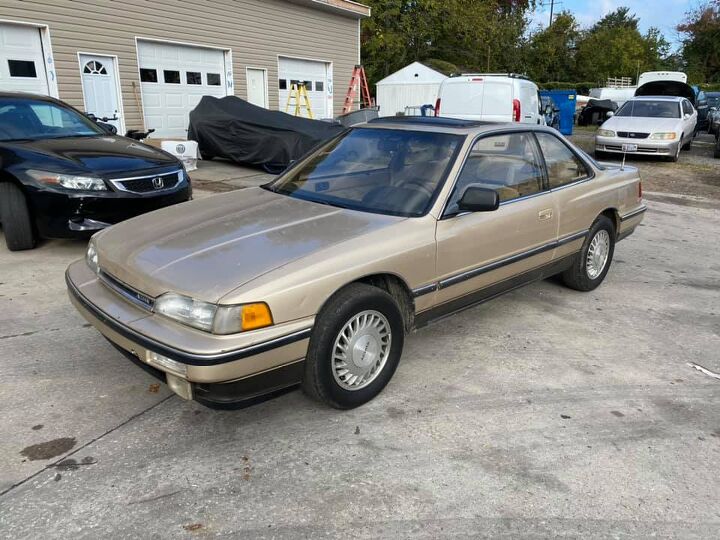
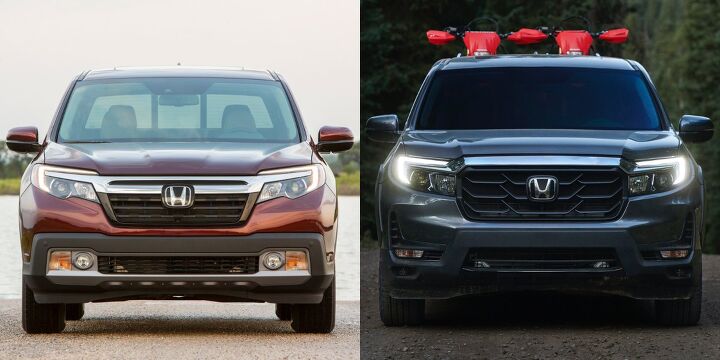
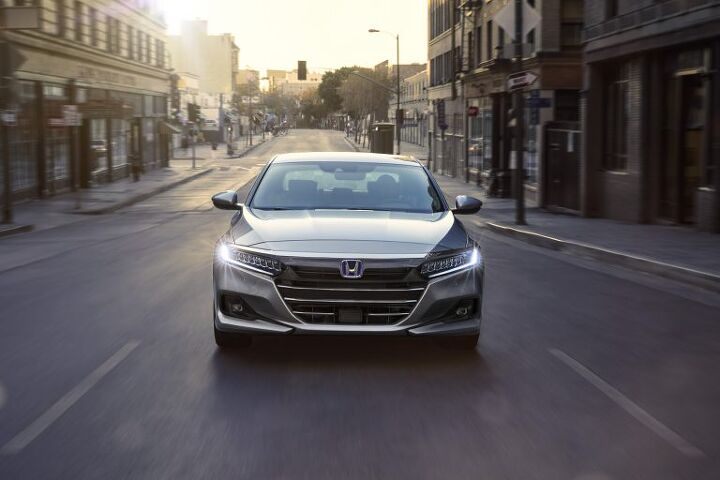
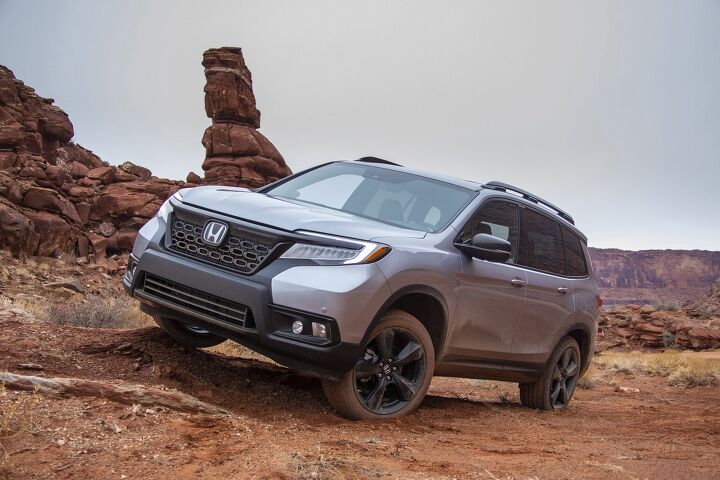
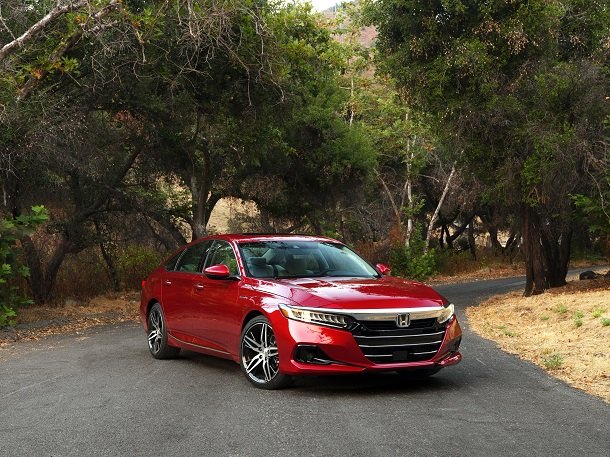






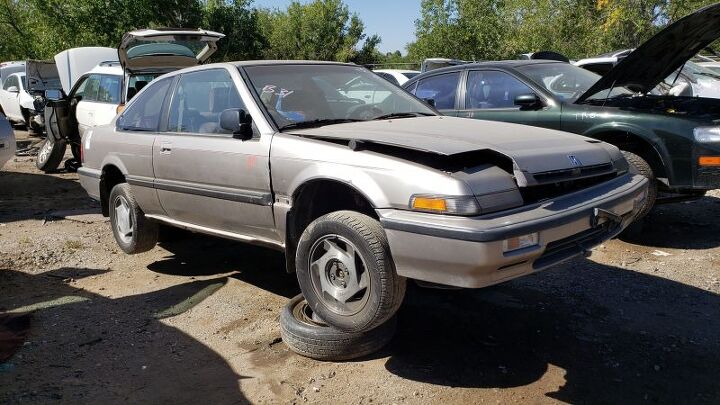













Recent Comments